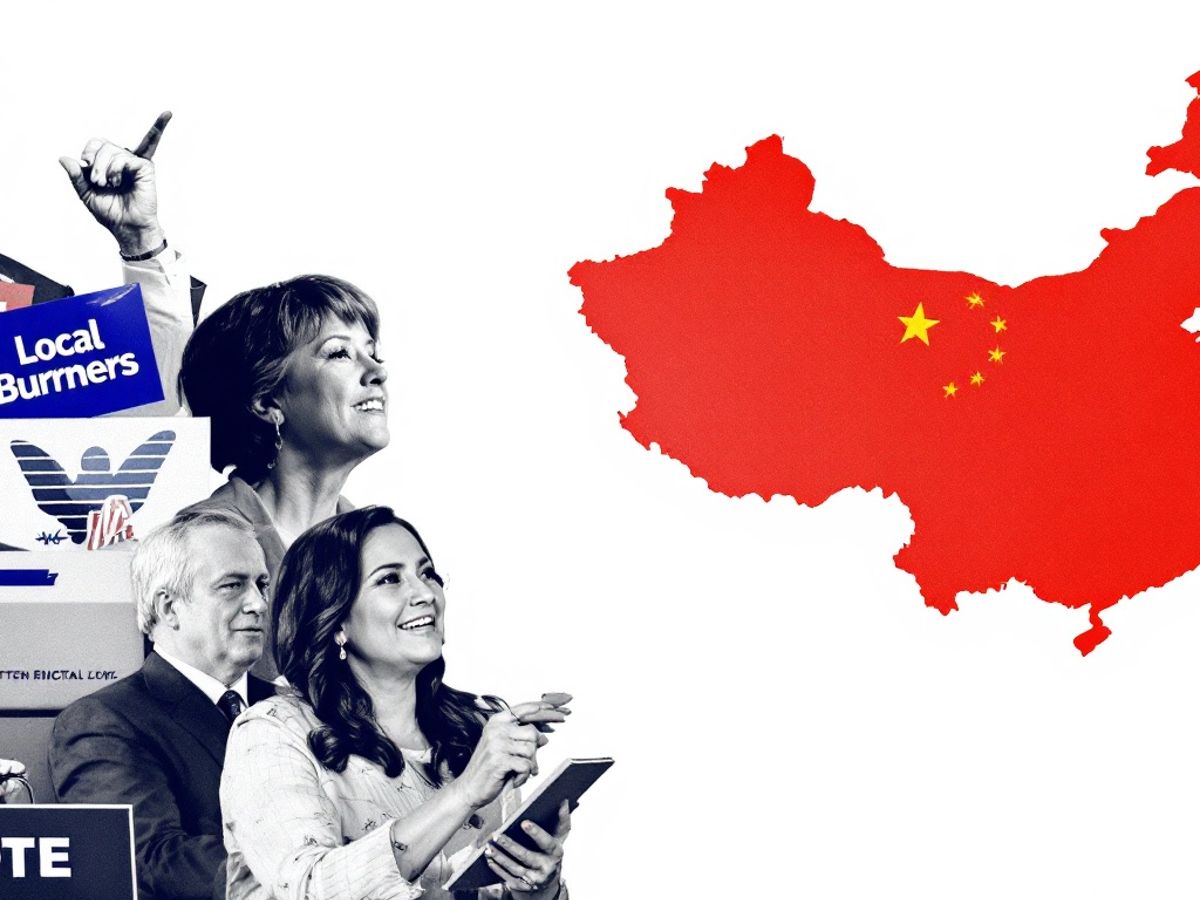Business
Chinese Influence Operation Targets U.S. Down-Ballot Races, Microsoft Reports

An alarming report from Microsoft reveals that a network of Chinese-controlled social media bots is actively attempting to sway voters in key down-ballot races across Alabama, Texas, and Tennessee. This operation, attributed to a group known as Taizi Flood, aims to undermine Republican candidates by spreading antisemitic messages and corruption allegations.
Key Takeaways
- Chinese bots are targeting U.S. down-ballot races, particularly in Alabama, Texas, and Tennessee.
- The operation focuses on Republican candidates, including Marco Rubio, Barry Moore, Michael McCaul, and Marsha Blackburn.
- Bots are amplifying antisemitic rhetoric and accusations of corruption against these politicians.
- China denies any involvement, calling the claims "malicious speculations."
Overview Of The Operation
The influence operation, identified by Microsoft, is characterized by a coordinated effort to discredit Republican lawmakers who have historically criticized Chinese government policies. The targeted candidates include:
- Barry Moore (Alabama)
- Michael McCaul (Texas)
- Marsha Blackburn (Tennessee)
- Marco Rubio (Florida)
These candidates are facing reelection next month, with Rubio not up for reelection until 2028.
Tactics Employed
The bots have been observed engaging in various tactics to manipulate public perception:
- Amplifying Antisemitic Messages: The bots have criticized Moore’s support for Israel using antisemitic language.
- Corruption Accusations: Rubio has been falsely linked to a financial corruption scheme, while McCaul has faced claims of insider trading.
- Promoting Opposition Candidates: The bots have also been used to bolster the campaigns of rivals against Blackburn, alleging she received funds from pharmaceutical companies.
Responses From Targeted Politicians
The targeted politicians have responded to the influence operation with a mix of defiance and concern:
- Barry Moore stated that the Chinese Communist Party (CCP) is attempting to sow division, particularly against those who support Israel.
- Michael McCaul described the targeting as a "badge of honor," emphasizing his commitment to standing up to the CCP.
- Marco Rubio expressed that the operation aims to shape American opinion on critical issues and target candidates perceived as anti-China.
Official Reactions
The Office of the Director of National Intelligence has reiterated that foreign actors, particularly from Russia, Iran, and China, are intent on creating divisive narratives to undermine confidence in the U.S. democratic system. This highlights the ongoing threat posed by foreign influence in American elections.
Conclusion
As the U.S. approaches crucial elections, the revelation of this Chinese influence operation underscores the need for vigilance against foreign interference. The targeted candidates and their supporters are calling for increased awareness and action to protect the integrity of the electoral process. The situation remains fluid, and the impact of these tactics on voter sentiment will be closely monitored in the coming weeks.
Sources
-

 Press Release6 days ago
Press Release6 days agoBellarium ($BEL) Price Prediction: Could It Hit $5 by 2026?
-

 Press Release3 days ago
Press Release3 days agoClinical Trials Market Set for Robust Growth, Driven by Drug Development Surge and Digital Innovation
-

 Business5 days ago
Business5 days agoHow Managed IT Solutions Help Small Teams Compete at Enterprise Scale
-

 Press Release4 days ago
Press Release4 days agoFill-Finish Pharmaceutical Contract Manufacturing Market Expected to Flourish Amid Biopharmaceutical Boom and Global Outsourcing Trend by 2035
-

 Press Release4 days ago
Press Release4 days agoIndustrial Boiler Market Expected to Surpass USD 24.4 Billion by 2035 Amid Growing Demand for Energy Efficiency and Industrialization
-

 Press Release4 days ago
Press Release4 days agoPreventive Vaccines Market to Witness Strong Growth by 2035
-

 Press Release4 days ago
Press Release4 days agoGreen Bio Chemicals Market Poised for Sustainable Growth amidst Global Shift to Eco-Friendly Alternatives by 2035
-

 Press Release4 days ago
Press Release4 days agoPet Food Nutraceutical Market Set for Robust Expansion Amid Rising Demand for Pet Wellness by 2035






























